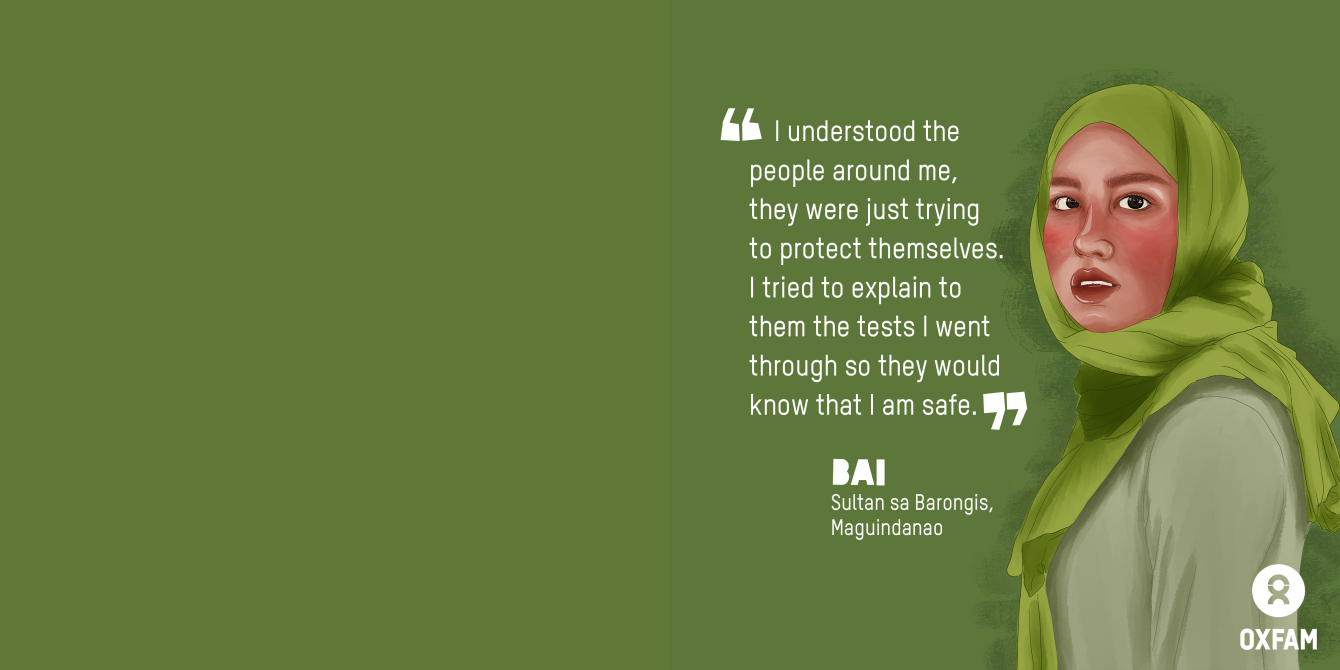
Bai, HBCC Stigma Stories (Illustration: Vina Salazar/Oxfam)
Stigma Stories: Others before Self
Thirty-two-year-old Bai was supposed to fly abroad for work when the Philippine Government declared a country-wide lockdown including the temporary suspension of thousands of international and domestic flights. Bai had prepared for her departure for a long time, but all of her plans took a sudden turn when she was left with no other choice but to go back home to Sultan sa Barongis, Maguindanao.
As soon as the flight bans were lifted, she managed to get herself a ticket. Upon arrival in Maguindanao, she went through a mandatory swab test followed by a 14-day quarantine at home as set by the Government’s health protocols. A member of the rural health unit (RHU) was assigned to visit her to monitor her health and if check if she had developed any symptoms.
“Upon my arrival, my neighbours refused to go near me. They were afraid I might have brought with me the COVID-19 virus because I came from Manila. I am not used to that kind of treatment.”
Bai stayed inside her room and relied on her family to bring her meals. Although she was at home, she was still worried because it had been months since she last saw her children. And now that she was home, she could not even hug them.
Fortunately, Bai’s COVID-19 swab test yielded a negative results. Although she already acquired the health clearance and was now able to go outside her house, some neighbours still refused to interact with her.
“People kept asking if I was already done with my quarantine. One time, I overheard someone told her children ‘Don’t go near her, she just came back from Manila!’”
It is true that the capital, Manila, is one of the hotspots of COVID-19 infection, but she had carefully watched over her health and went through several tests to be able to travel back home.
“I understood the people around me, they were just trying to protect themselves. I tried to explain to them the tests I went through so they would know that I am safe.”
Looking back, Bai appreciated the health protocols and understood the importance of following the mandatory quarantine.
“I would advise other individuals like me who traveled back home to go through the quarantine to protect their family and to ensure the safety of everyone. Ignore the negative views about you and try to understand them.”
Bai hopes that when things get better, she will be able to pursue her plan to work overseas.
*Bai’s real name withheld.
 Follow us on Facebook
Follow us on Facebook Instagram
Instagram Follow us on Twitter
Follow us on Twitter LinkedIn
LinkedIn